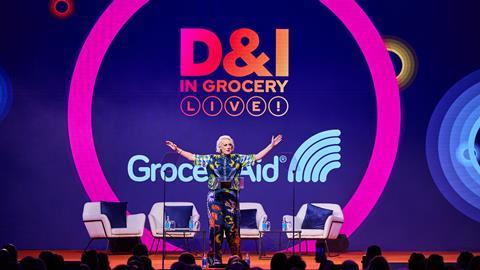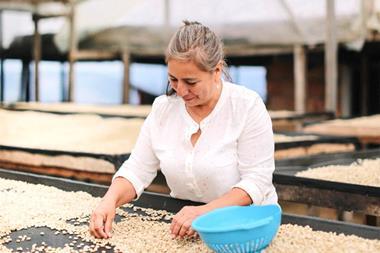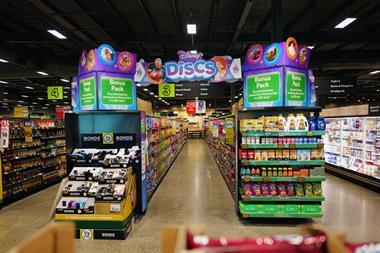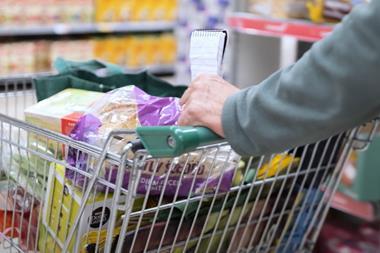GroceryAid’s D&I in Grocery Programme has grown to over 100 partners, improving the sector’s maturity score and impacting 1.2 million colleagues. Industry leaders argue inclusion is now essential for commercial success, not just moral duty.
It’s been a turbulent year. Shifting political priorities. Economic uncertainty. Values have never mattered more. More than 34% of Gen Zs have turned down employers that do not align with their values, according to [Deloitte]. 75% of consumers say that a brand’s diversity and inclusion reputation influences their purchase decisions [Kantar]. Perhaps most striking: diverse companies see 19% higher innovation revenue and inclusive teams are 75% more successful with their ideas [Ferry].
The good news it that the grocery sector is demonstrating that real progress is not only possible, it’s already happening.
GroceryAid’s D&I in Grocery Programme now counts over 100 partners driving tangible change across the industry. The sector’s D&I Maturity Model score has improved from 4.4 out of 10 in 2024 to 4.8 in 2025, positively impacting 1.2 million industry colleagues. Behind these numbers sits a thriving community: 500+ partner connections, learning labs and partner hubs used by 3,500 allies, a 12-month mentoring programme supporting 400 individuals and D&I in Grocery LIVE! - the industry’s largest D&I event.
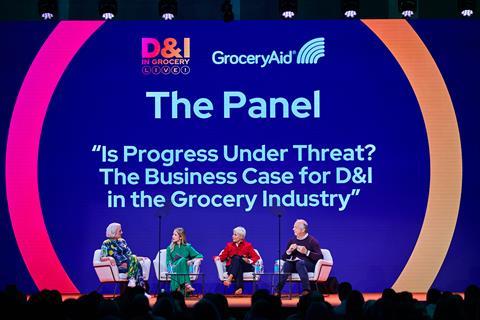
At D&I in Grocery LIVE! 2025, panellists Simon Roberts, CEO of Sainsbury’s, Heather Jackson, founder of GenM and Marisa Poster, co-founder of PerfectTed, challenged the industry to continue driving progress and set the benchmark for inclusivity, not just as a moral imperative but as an essential commercial driver.
The question for grocery leaders is simple: Are you going to let your organisation fall behind?
When customers feel invisible
Marisa Poster knows what it feels like to be invisible to an entire industry. When she moved from the US to the UK, she brought with her a dependency on matcha, not as a trendy wellness drink, but as the only form of caffeine her ADHD brain could tolerate. ”I used to be a coffee addict. I love coffee, or at least I did, but coffee didn’t love me. It did not agree with my brain,” she explains.
But at that time, matcha wasn’t stocked in mainstream supermarkets. When she could find it, it was tucked away in niche retailers at prices she couldn’t afford in her early 20s. She found the experience of walking into shops and finding nothing that catered to her needs was more than inconvenient, it was alienating. ”When you go to a supermarket shop and you don’t see a product that actually feels like it was made for you, it’s quite challenging because it almost reinforces the belief that you’re different, you’re not meant to be here.”
Twenty per cent of the population is assumed to be neurodivergent, “and I say assumed because many people haven’t been able to have the access to a diagnosis. So, the collective buying power of that subset is massive,” points out Poster. Her experience reveals not just a missed opportunity, but a significant market gap that forward-thinking retailers are now beginning to address.
The cost of commercial negligence
If Poster’s story highlights a missed opportunity, Heather Jackson’s experience with GenM demonstrates what happens when entire demographics are overlooked. Five years ago, navigating menopause, Jackson found herself let down by the brands she’d been loyal to all her life. The research she commissioned revealed a staggering disconnect.
“Eighty-seven per cent of women felt let down by brands that they had stayed loyal to all their lives. 88% wanted brands to do better by them. 66% couldn’t find what they were looking for in stores or online,” Jackson explains. “In total, 15.5 million women in the UK are menopausal at any one time, 75 million in the US. One billion globally. We are not a community, we are 50% of the population and every woman will enter menopause,” she emphasises.
Yet when Jackson approached major retailers with her plan to create a one-stop menopause destination, the response was telling. “Every retailer said: ‘What’s menopause?’ and ‘What’s it got to do with us?’ Maybe you need to see our HR team. Not our commercial team, our HR team.”
”At that point I needed to make menopause the new vegan,” says Jackson. As she points out, retailers had spent years developing extensive ranges, signposting and customer experiences for vegans, who represent just 3% of consumers. Meanwhile, an audience representing 20% of the population, who felt overlooked and underserved, had none of that consideration. “Where’s our signposting? Where’s our customer experience?,” asks Jackson.
The transformation has been remarkable. Three years later, 120 brands are now listed with major retailers including Sainsbury’s and Morrisons, proof that when the industry listens, it can move with speed and purpose.
Inclusion as business strategy
For Simon Roberts, CEO at Sainsbury’s, the shift toward inclusive practices wasn’t optional, it was essential for survival. ”The intensity of competition means retailers can no longer rely on footfall alone,” asserts Roberts. “Understanding who your customers really are and what they need has shifted from being a background consideration to a core strategy.”
“If we don’t have the most diverse teams and the most different perspectives around the table, we’ll never understand what customers really want,” says Roberts. “It’s going to become much more challenging to win that customer’s decision to come and shop with you,” he adds.
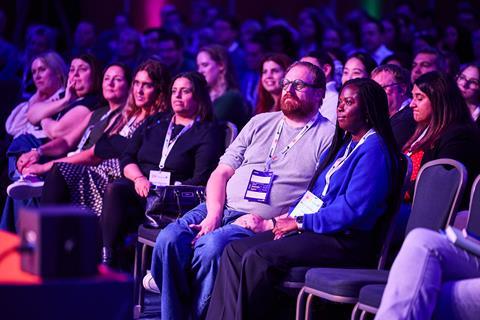
Diversity and inclusion aren’t just about moral duty or customer satisfaction. At Sainsbury’s, diverse leadership teams make better decisions, faster. “When we’ve had a much more diverse leadership team and very different thoughts and ideas around the table, you make decisions much quicker because you get to the heart of what you need to do more quickly and, because of that, you can save time, you can save money,” explains Roberts.
This operational efficiency represents a significant competitive advantage in an industry where margins are tight and speed to market is critical. By embedding inclusive business practices, grocery retailers can drive commercial success while enhancing customer satisfaction and employee engagement.
But how can businesses actually build inclusion, rather than simply talk about it?
For PerfectTed’s Poster, it’s not simply through symbolic gestures. “To really embrace diversity and inclusion in a workplace, I personally believe that it starts at the top. I think you should have examples in leadership representing your diverse audience, the people that you serve, the people in your community.”
GenM’s Jackson, meanwhile, maintains that the entire framework of D&I needs reconsidering. “Right now, D&I has lost its place: people don’t know what you’re doing, how you’re doing it and what it’s for,” she says. “We’ve just got to think differently. We’ve got to stop cutting and pasting D&I and making it do what you want it to, and fit in. Think differently, blow it all up and start again.”
“Inclusion isn’t a conversation we have on its own. It’s right at the heart of how we lead,” explains Sainsbury’s Roberts. The imperative of inclusion should be driving commercial decisions, he suggests. With the grocery industry employing millions and serving millions more daily, the opportunity to make a difference has never been clearer.
Leading the way forward
The grocery sector stands at a pivotal moment. With the commercial benefits proven and the tools for change available, the question is no longer whether to prioritise diversity and inclusion, but how quickly organisations can embed these practices into their core operations.
As demonstrated at D&I in Grocery LIVE! 2025, the sector is not just responding to change, it’s actively shaping a more inclusive future. By positioning inclusive business practices as a driver of innovation, customer engagement and financial growth, grocery retailers can set the benchmark for other industries to follow.
Progress may face challenges, but the commitment shown by over 1,100 leaders at this year’s event proves that the grocery industry recognises what’s at stake. The business case for D&I isn’t under threat, it’s stronger than ever.
To drive change and join the D&I in Grocery Programme for 2026, email hello@diversityingrocery.co.uk. Or to secure your spot at next year’s D&I in Grocery LIVE! and ensure you don’t miss out, book your tickets for 2026 at diversityingrocery.co.uk/di-in-grocery-live/
About GroceryAid
In partnership with supporters across the industry, GroceryAid has been providing financial, emotional and practical support for grocery people since 1857. GroceryAid also runs the D&I in Grocery Programme, bringing together the sector’s largest community of D&I practitioners, allies and change-makers. To access GroceryAid’s support services, call the free and confidential Helpline (08088 021 122) which is available 24 hours a day, 365 days a year or visit www.groceryaid.org.uk for more information.








